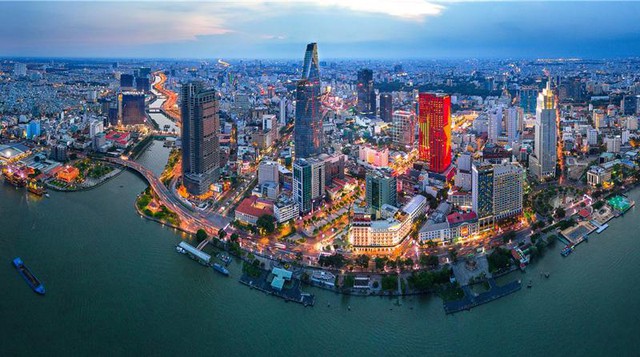UOB maintains Viet Nam’s growth projection at 6% this year
VGP - Viet Nam’s prospects are bolstered by the recovery in the semiconductor cycle, stable growth in China and the region, as well as supply chain shifts that are largely in favor of Viet Nam and other ASEAN countries, said researchers at Singapore-headquartered bank UOB.

In a note released on January 29, the bank maintains its growth forecast for Viet Nam at 6 percent for 2024. Inflation pressures are anticipated to remain on the upside, with a forecast for the CPI to stay elevated at 3.7 percent in 2024, from 3.25 percent in 2023.
An increase in both actual and registered foreign direct investment (FDI) inflows in 2023 will further boost Viet Nam's domestic activities in the quarters ahead including construction and employment.
Despite a difficult year for both exporters and manufacturers amidst global uncertainty and geopolitical tensions, disbursed FDI inflows into Viet Nam achieved a record high of US$23.2 billion last year while registered FDI surged 32 percent to US$36.6 billion, almost matching the record high of US$38 billion in 2019.
These indicators suggest that businesses continue to view Viet Nam as an important investment destination in the mid to long term, amid the ongoing reconfiguration of global supply chains, said the analysts.
The FDI inflows also indicate an affirmation of foreign enterprises' confidence and commitment to the country in the current wave of de-globalization, de-risking, and supply chains shifts.
Looking back on 2023, UOB researchers comment that Viet Nam ended the year on a hopeful note, with GDP growth coming in at 5.05 percent. External demand showed signs of recovery in the latter part of the year, helping manufacturing output return to positive territory towards the year-end.
For the year ahead, the road remains bumpy with downside risks due to the uncertainties and risks arising from the ongoing military conflicts elsewhere in the world, geopolitical contestations among the major powers, and an environment of high interest rates, they add.
For one, the conflict around the Red Sea areas, which account for 12 percent of global trade with 17,000 ships sailing through annually, have caused global shipping companies to re-route around the Cape of Good Hope, thus lengthening the journey, causing shipment delays, higher delivery costs and disruptions to shipping network.
"This would hurt not just the end consumers and users, but exporters, manufacturers and supply chains worldwide, including Viet Nam, as orders would be impacted by delays and higher costs, and thus production," they comment.
Another factor to consider is the implementation of global minimum tax (GMT) in Viet Nam on multinational enterprises (MNEs), effective from January 1, 2024.
With the current change, foreign investors especially MNEs will need to take into account higher tax costs in their future planning.
It would be critical that measures to be implemented to offset the GMT, such as reduction of costs and raising labor productivity, in order to preserve the competitiveness of Viet Nam as an investment location, the bank recommended./.
